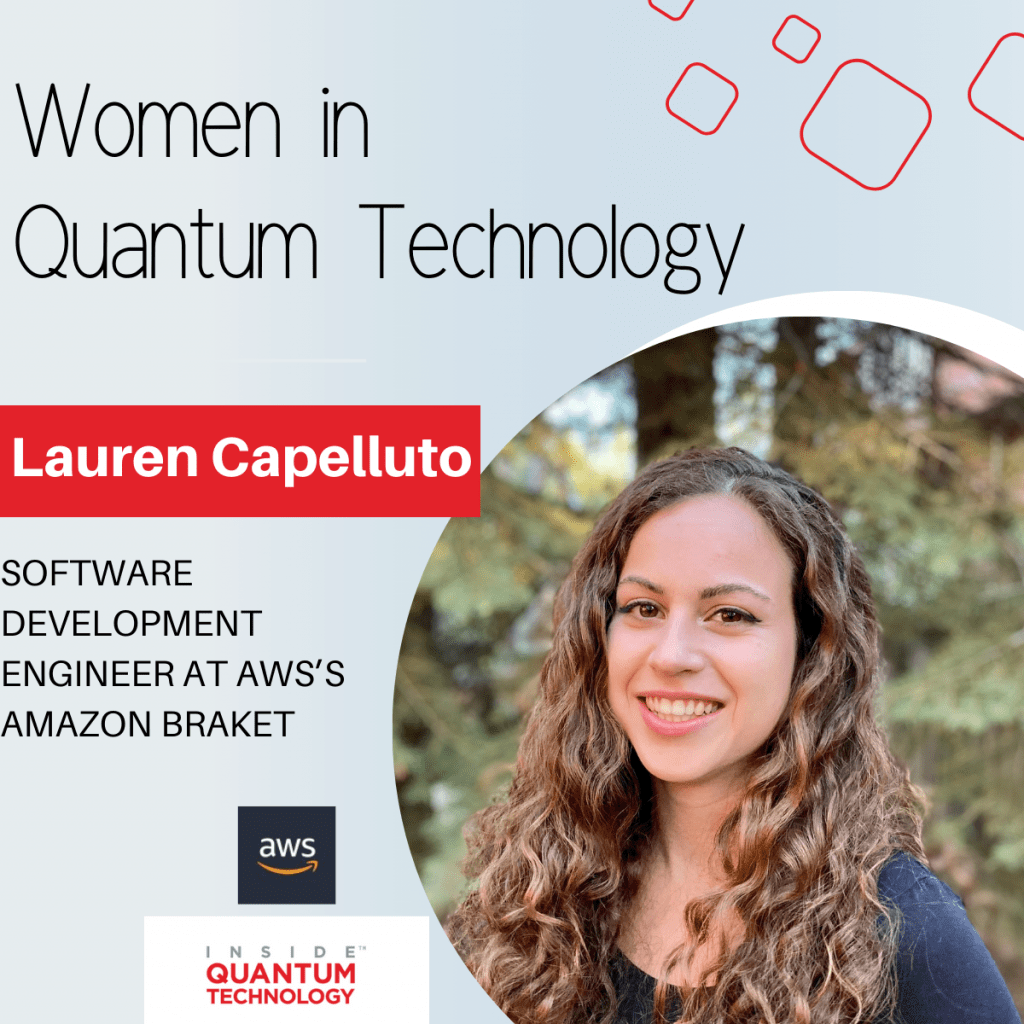In the burgeoning field of quantum technology, Lauren Capelluto stands out as a key innovator as a software development engineer at Amazon Web Services (AWS), where she contributes significantly to the Amazon Braket platform. Capelluto’s journey into quantum technology began in high school, sparked by the famous Schrödinger’s cat thought experiment. This initial fascination led her to pursue a university double major in Physics and Computer Science. “Quantum mechanics was unlike anything I had heard of before,” she recalled to Inside Quantum Technology. “Over time, my interests became a lens through which I view the world. I didn’t know it until my last year, but these studies gave me a great background for quantum computing—which was, after all, born from the intersection of both fields.”
During her undergraduate degree at UC Berkeley, Capelluto faced uncertainty about her career path. A visit to the university’s career center was a turning point. “By a stroke of luck, I learned about a quantum computing startup near my university,” she shared. “I applied to the start-up and suddenly, most of my colleagues had a background in physics, computer science, or both.” This opportunity began her journey in the quantum computing industry, where she found her niche, combining her dual passions. Eventually she landed her current position at AWS.
Now in her role as a software development engineer at AWS, Capelluto is focused on Amazon Braket, a service that democratizes access to quantum computing. “We make quantum computers available through the cloud, similar to other forms of computing,” she explained. With over five years of experience in the quantum computing industry, her expertise lies in quantum programming interfaces and quantum compilation, crucial areas for advancing quantum computing accessibility and utility.
As a woman in the growing ecosystem of quantum technology, Capelluto emphasizes the importance of early influence in improving diversity in STEM fields to improve this ecosystem’s inclusivity. She supports organizations like Code Nation, Black Girls Code, and Girls in Quantum, recognizing their impact in inspiring young people to pursue STEM careers. She believes that the interdisciplinary nature of quantum computing, involving various fields and expertise levels, offers a unique opportunity to enhance diversity. “Increasing diversity in STEM will benefit our industry,” she asserts. “People with various experience levels have their place in quantum, including new graduates. And, it’s not only technical roles. There are product managers, marketing and public relations experts, and lawyers, for example. Many people enter quantum computing without previous experience in the field, but they’re experts in their own area.”
Kenna Hughes-Castleberry is the Managing Editor at Inside Quantum Technology and the Science Communicator at JILA (a partnership between the University of Colorado Boulder and NIST). Her writing beats include deep tech, quantum computing, and AI. Her work has been featured in National Geographic, Scientific American, Discover Magazine, New Scientist, Ars Technica, and more.
